You wouldn’t imagine that there would be much space for running in Singapore, but when it comes to track options, size doesn’t matter. Whether you’re new to running or a seasoned jogger, we’ve got plenty of different places to run on the rough or smooth. Check out the handy guide below and start planning which of Singapore’s running tracks to tackle next!
Botanic Gardens
You can expect nothing less than a scenic green run through the Botanic Gardens. With uphill slopes and uneven surfaces, this can make for a more challenging run that you might expect – one that will especially appeal to regular joggers.
Distance: Depends on the route chosen, also great for laps (it’s about 4km or so to do a loop).
Tips: It can be a bit of a maze navigating the various trails and entrances, so if you’re planning to go in a group, work out where to meet!
Various entrances including the Tanglin Gate on Napier Road
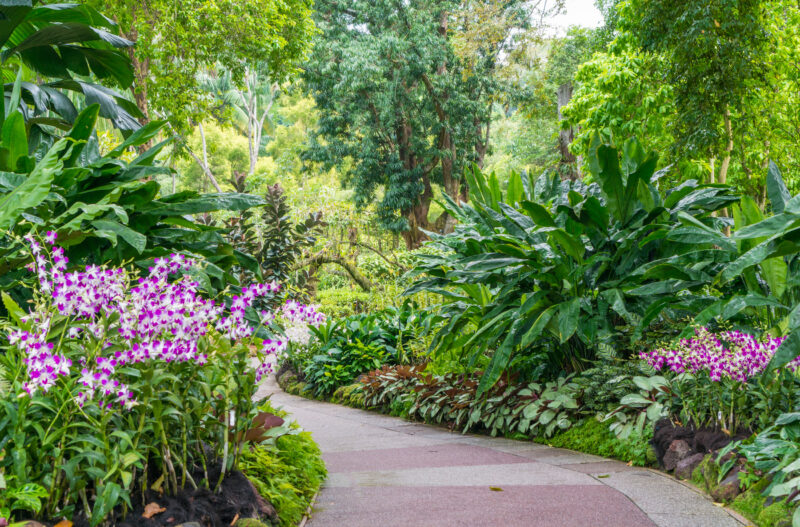
Coastal Park Connector (East Coast Park & Changi Beach Park)
To enjoy Singapore’s coastline in its entirety, this is a definite must. From East Coast Park to Changi Beach Park, runners can expect to come across a sea breeze (hopefully) and view some planes taking off.
Distance: 8km
Tips: If you’re really feeling game for it, consider jogging or cycling the whole 42km Eastern Coastal Park Connector Network.
Along Nicoll Drive and Changi Coast Road
Fort Canning Park
Climb the Fort Canning staircases and you’ll find yourself elevated above the city streets of Singapore. Here, trees border and surround the park, so joggers can look forward to a day run shaded from the afternoon sun. There are also amenities such as toilets and refreshment vending machines for your wind down.
Distance: 3km
Tips: Take a mini history lesson during your running break and check out some of the preserved sites and memorials around the park.
51 Fort Canning Rise
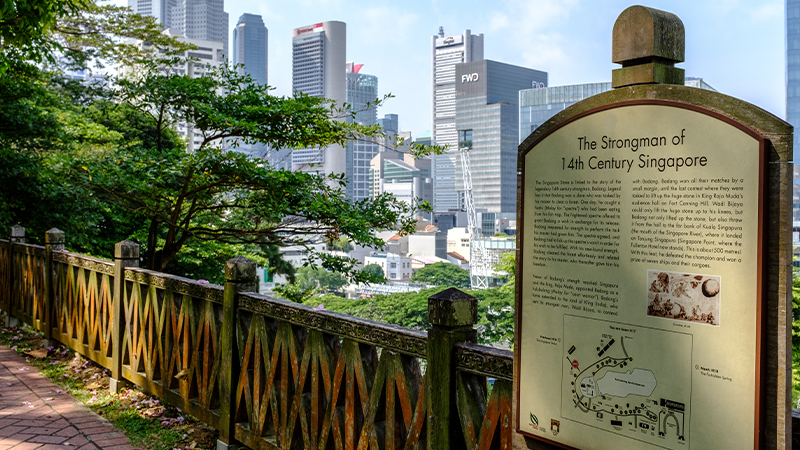
East Coast Park
This running track is perfect if you’re just starting off. There are plenty of water points, toilets and food outlets along the trail and the trees keep it shady during the daytime.
Distance: 15km, but you can make your loop any length you like.
Tips: Chances are you’ve already been to or heard of East Coast Park on account of the million other activities you can do while you’re here so it’s no surprise that it gets crowded on weekends. Try jogging in the early mornings or weekdays to avoid the masses.
902 East Coast Parkway
Kallang Riverside Park
While water sports enthusiasts tend to flock to this spot, runners should tale a look too. The track here is fairly friendly and is recommended for running in Singapore for all levels.
Distance: 5km
Tips: For a longer run, head south along the water to the F1 Pit Lane and Singapore Flyer.
Kallang Riverside Park, Stadium Link
MacRitchie Reservoir
MacRitchie is the perfect place to head to if you want a jungle backdrop to running in Singapore. Structured around the island’s biggest water catchment, a run here will surround you with nature and other avid runners especially on the weekends.
Distance: 10km to do the loop all the way around the reservoir, but you can do smaller sections too.
Tips: This track has a number of different trails with a variety of terrains. Use this to your advantage and tailor your route to make each run count.
Corner of Lornie Road and Upper Thompson Road
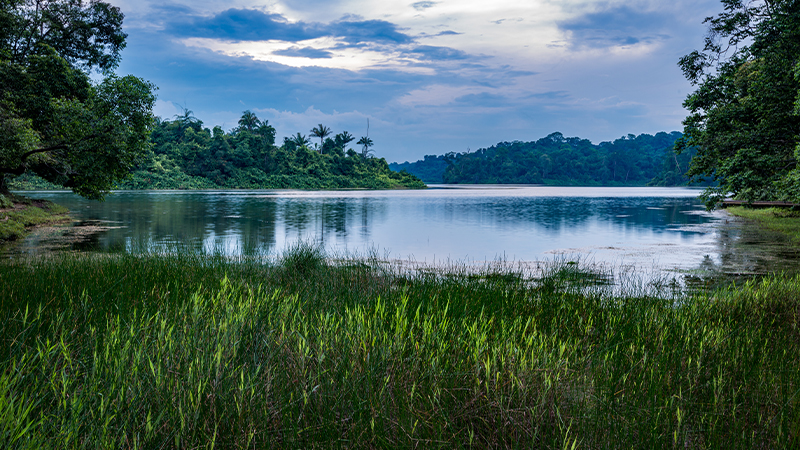
Marina Bay
Located at the doorstep of the CBD, the Marina Bay loop is ideal for keen joggers working around the area. This trail is perfect for a quick run in between errands or even just for a casual stroll to admire the urban views.
Distance: 3.5km
Tips: You can expect this route to be frequented by tourists, especially when it’s cooler at night. To steer clear of a wave of people, try to visit this run in the morning.
Around Marina Bay and across the Helix Bridge
Sentosa Beaches
Whether you’re more confident running barefoot on the beach or on a concrete jogging path, you’ll have the option of both here. Just make sure you don’t trip over a sleeping sunbather!
Distance: 3.5km
Tips: Slap on some sunscreen if you’re planning to run along the beach on a sunny day!
Sentosa Island, Siloso Beach to Tanjong Beach
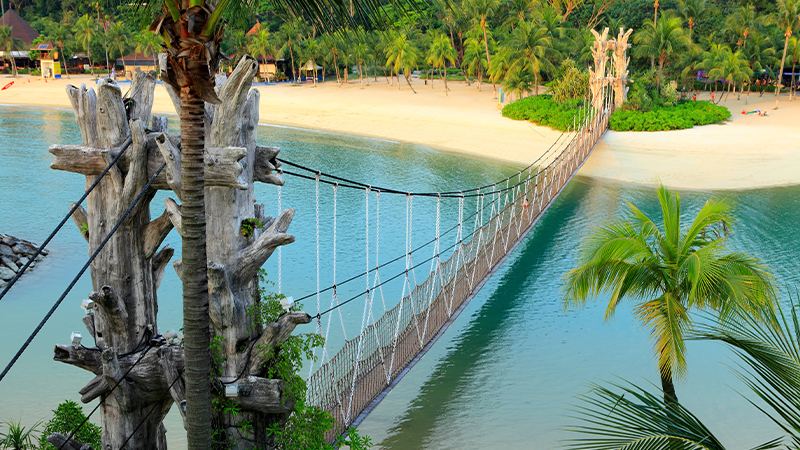
Singapore River
For first time visitors and tourists, this is the perfect run to get you acquainted with some of the more prominent city sights and historical landmarks. There’s a little starting and stopping because of the occasional traffic light, but it’s still a comfortable run with urban views of Singapore.
Distance: 6km
Tips: If you aren’t staying in a nearby hotel, be aware that there aren’t any accessible locker or shower facilities around the area. Plan your jogging route ahead to avoid an awkward train ride home.
Simply follow the path along the Singapore River
Southern Ridges Trail
Here’s one run that’s really going to test your fitness. Connecting Mount Faber Park, Kent Ridge Park and Telok Blangah Hill Park, this circuit is filled with steep slopes, steps and different terrain to really push your limits.
Distance: 9km
Tips: It’s not impossible to complete but we recommend this to seasoned joggers or really, really persistent newbies.
From Mount Faber park, Telok Blangah Park or Kent Ridge Park
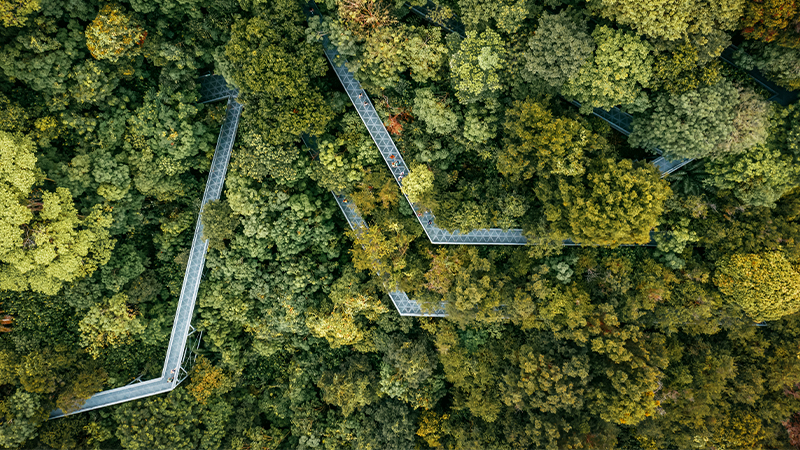
Read more great stories like this in our Health & Fitness section!



